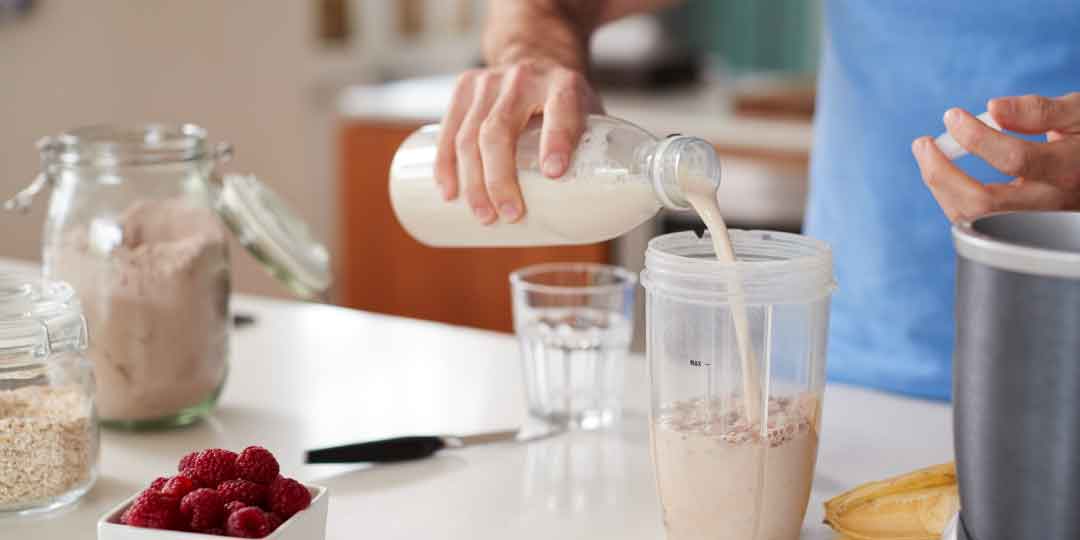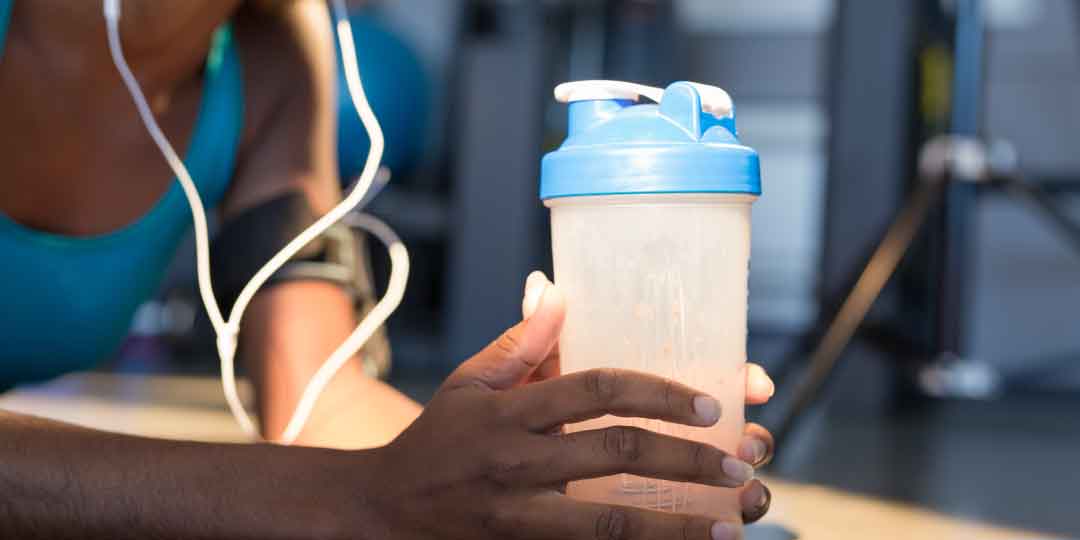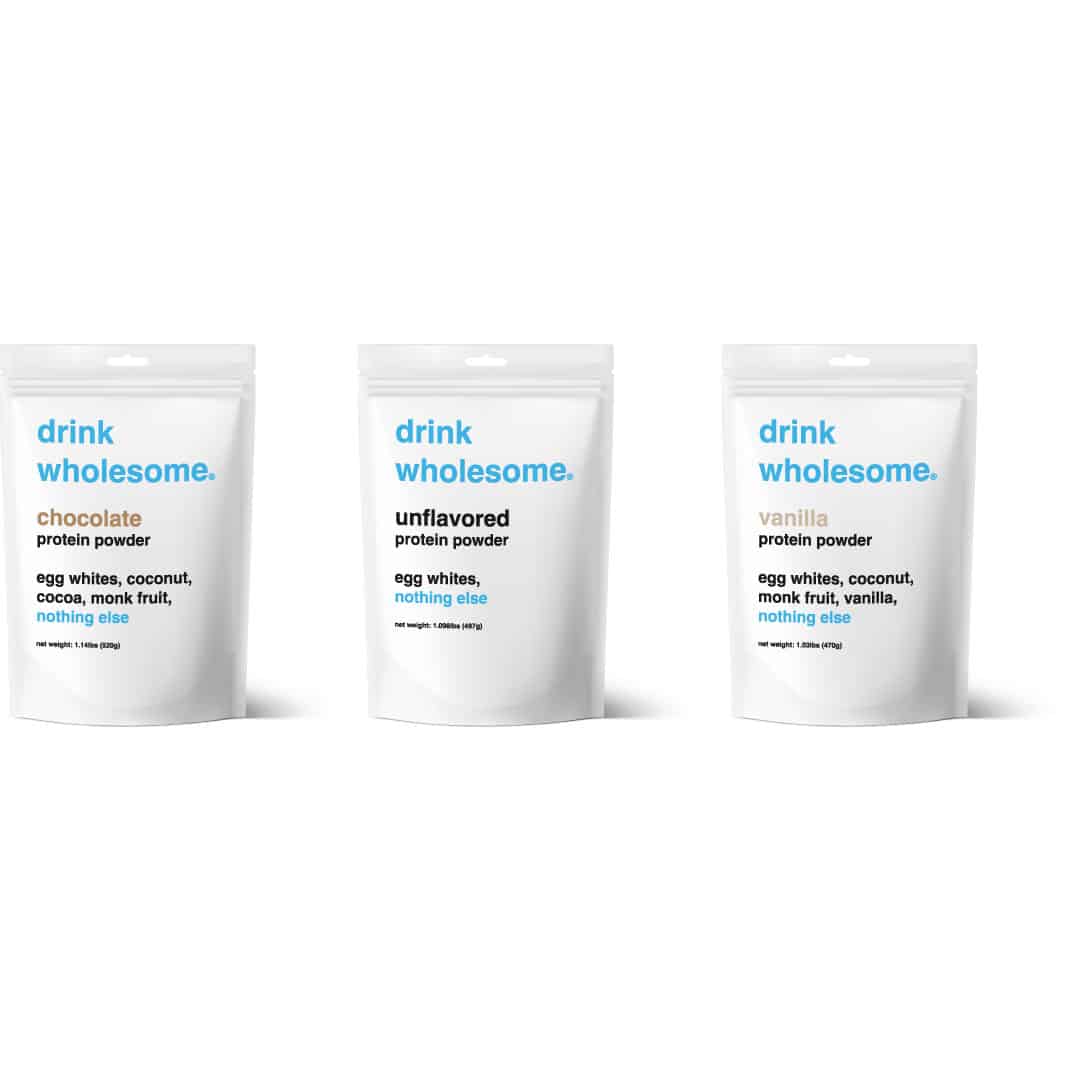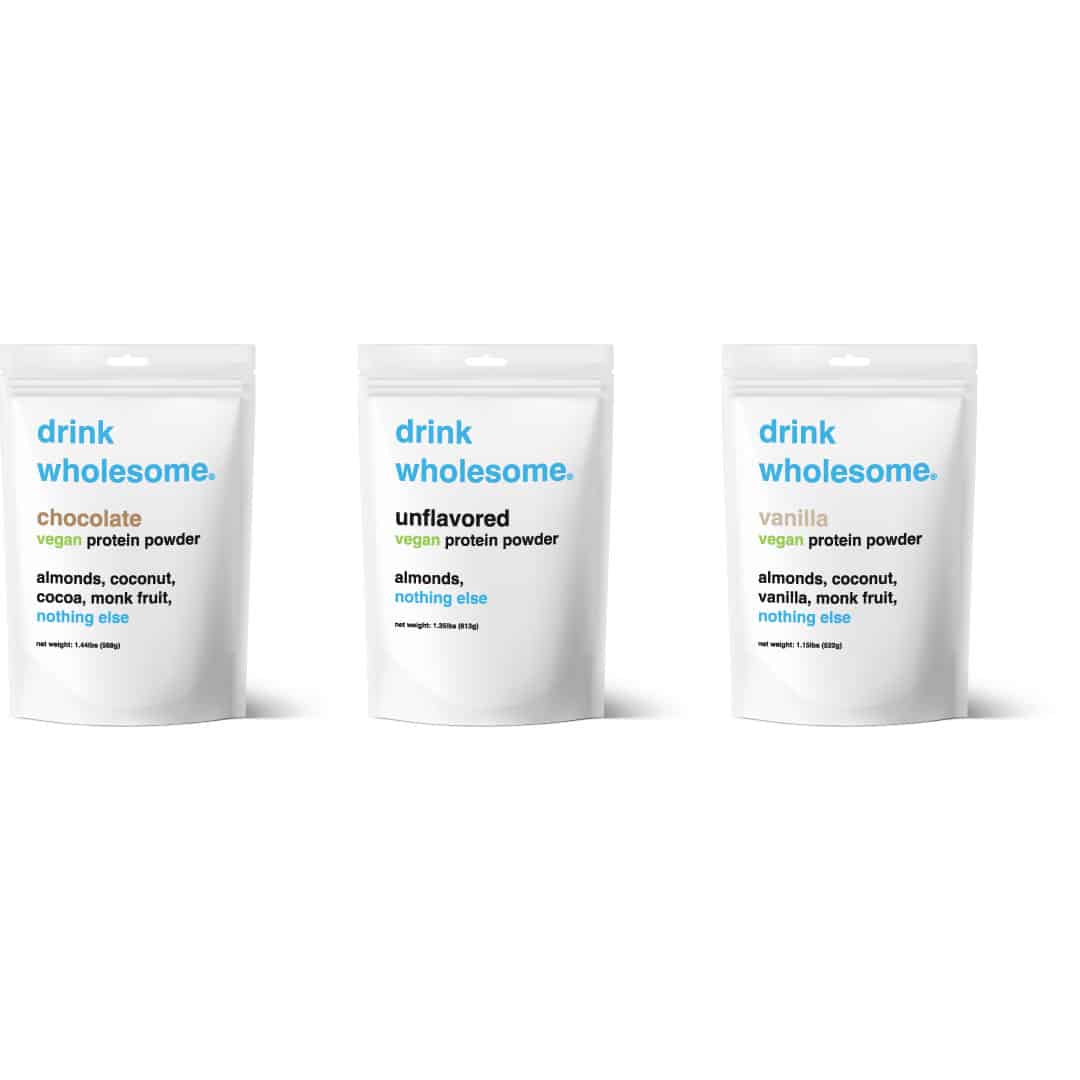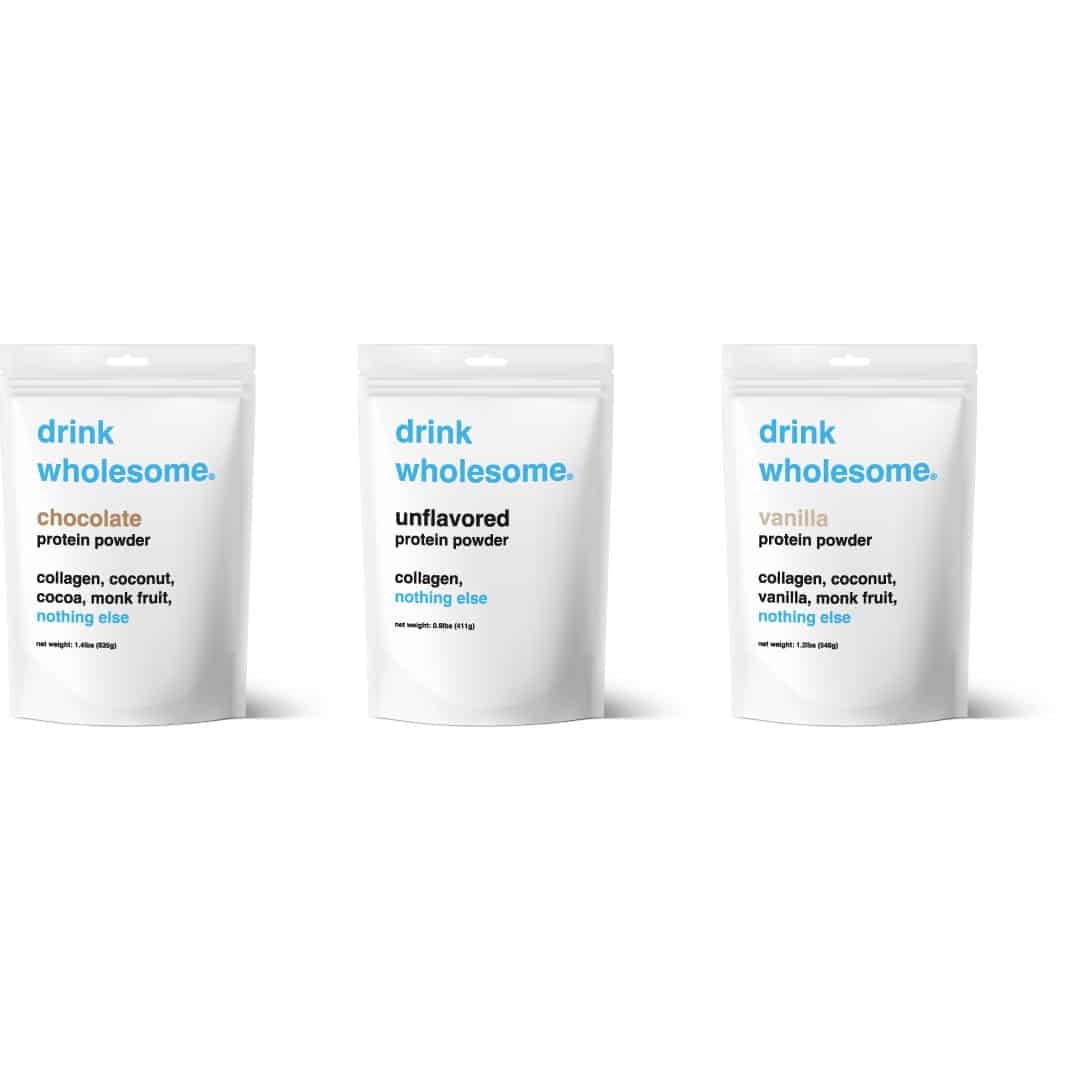Why do protein shakes make me feel weird?
Why do protein shakes make me feel weird? Learn how to supplement your dietary protein intake without upsetting your stomach.
Protein shakes and feeling weird
Why do protein shakes make me feel weird?
Protein shakes make many people feel weird, “off,” or even sick. If your protein supplement makes you feel bloated, nauseous, or run to the bathroom, you are not alone. Feeling weird is a common side effect of protein shakes, and is usually linked to digestive issues.
That said, if you feel dizzy or lightheaded after drinking a protein shake, you could have a common condition called postprandial hypotension, which loosely translates to low blood pressure after eating. Digestion reroutes a lot of blood to your stomach and small intestine, and to compensate for this change, the heart beats faster and harder and certain blood vessels contract.
These two actions help maintain blood pressure and blood flow to the brain, extremities, and everywhere in between. In some people, however, the heart and blood vessels do not contract as they should, which causes their blood pressure to decrease everywhere but in their digestive system.
Such a sudden drop in blood pressure can cause dizziness or lightheadedness. In some cases, postprandial hypotension can also cause nausea. This condition generally only affects one third of older men and women, however, so it is more likely that protein shakes make you feel weird for other reasons.
Many protein supplements are made with ingredients that can upset your stomach and make you feel weird. Among these ingredients are food additives, dairy-based proteins, and protein concentrates and isolates.
Food additives
Emulsifiers, thickeners, sugar substitutes, and other additives look nothing like real food, which makes them hard to digest. Foods that are hard to break down feed your gut bacteria, which release gas as they eat. Too much intestinal gas can cause bloating and stomach pain, and even constipation.
Regularly eating certain food additives can also alter the composition of your gut microbiome – the collection of microorganisms living in your gut. This can lead to gut dysbiosis, which is linked to a number of chronic digestive issues. Here is a list of the most common food additives in protein supplements:
acacia fiber, acacia gum, acesulfame potassium, artificial flavors, ascorbic acid, aspartame, calcium carbonate, carrageenan, cellulose gum, dextrin, dicalcium phosphate, dipotassium phosphate, erythritol, gellan gum, guar gum, gum arabic, inulin, locust bean gum, maltodextrin, mono- and diglycerides, ‘natural’ flavors, rice bran extract, rice dextrin, rice hulls, rosemary extract, silica, silicon dioxide, sodium alginate, sodium bicarbonate, soluble corn fiber, soy lecithin, sucralose, sunflower lecithin, tocopherols, tricalcium phosphate, xanthan gum, xylitol, zinc oxide
Dairy
Dairy-based proteins like whey and casein, although not an issue for everyone, can upset your stomach. This is in part because they contain lactose, a sugar most adults cannot fully digest.
Protein concentrates and isolates
Most protein supplements are made from protein concentrates and isolates, which have been mechanically and or chemically stripped of everything but the protein, including the enzymes, fiber, and other natural digestive aids that help you break them down. This can cause digestive issues and may even disrupt your gut microbiome.
Finding a protein shake or powder free from food additives, dairy-based proteins, and protein concentrates and isolates is hard. In fact, 99% of protein supplements contain one or more of these problematic ingredients. This is why we created drink wholesome. Keep reading to learn more about why we make our protein powder will not make you feel weird.
drink wholesome will not make you feel weird
Our protein powder will not make you feel weird because we use a short list of simple ingredients free from food additives, dairy-based proteins, and protein concentrates and isolates.
egg whites, coconut, vanilla, monk fruit
the alternative:
Protein Matrix Comprised of (Whey Protein Concentrate, Whey Protein Isolate, Calcium Caseinate, Micellar Casein, Milk Protein Isolate, Egg Albumen, Glutamine Peptides), Polydextrose, Sunflower Creamer (Sunflower Oil, Corn Syrup Solids, Sodium Caseinate, Mono- and Diglycerides, Dipotassium Phosphate, Tricalcium Phosphate, Soy Lecithin, Tocopherols), Natural and Artificial Flavor, MCT Powder (Medium Chain Triglycerides, Nonfat Dry Milk, Disodium Phosphate, Silicon Dioxide), Lecithin, Cellulose Gum, Salt, Yellow 5, Sucralose, Acesulfame Potassium, Papain, Bromelain
Note that instead of using protein concentrates or isolates, we use whole food protein sources like collagen, egg whites, and almonds, which are easier to digest and absorb. Whole food protein sources also have unique digestive benefits: collagen can reduce bloating and improve digestive symptoms, egg whites can help restore your mucosal intestinal barrier, and almonds can improve the composition of your gut microbiome.
It follows that our customers experience fewer digestive issues with our protein powder than with any other type of protein supplement. Order samples to see for yourself.
What do you if protein shake makes you feel weird
If your protein shake is making you feel weird, here are a few steps you can take to address the issue:
- Switch brands: Not all protein supplements are created equal. Different brands use different ingredients, so trying a different brand might solve the problem.
- Adjust the serving size: It is possible that you are consuming too much protein shake or powder at once, which can overwhelm your digestive system. Try reducing the serving size and see if that helps reduce or eliminate any symptoms.
- Change the timing: Some people find that drinking a protein shake before or after a meal, rather than on an empty stomach, reduces digestive issues. Experiment with different timing to see what works best for you.
- Mix it with different liquids: Sometimes, the type of liquid you mix your protein powder with can affect digestion. Try mixing it with different types of liquid (water, milk, etc.) to see if one works best for you.
- Check the ingredients: Many, if not most, protein supplements contain ingredients that are hard to digest. As a rule of thumb, look for a short list of simple ingredients.
By listening to your body and following the steps above, you can find a protein shake that not only meets your nutritional needs, but also agrees with your body.
Reviews
Paula
1 month ago
Verified Purchase Drink Wholesome is a protein drink I actually look forward to drinking every day. My nurse practitioner recommended it as a great way to get more protein into my diet. Purchased the new chocolate protein powder and I absolutely love it. It's reassuring to know I'm drinking simple ingredients that I can pronounce and keeps my gut happy at the same time.
Cindy
2 months ago
Verified Purchase I am greatly enjoying the egg white protein powders I've ordered from you and am thrilled that my stomach has no issues whatsoever. I have tried many, many other protein powders and have had problems with each of them. Yours is the one and only that actually makes my stomach feel better!
Sloane
2 months ago
Verified Purchase I LOVE Drink Wholesome - it’s the only protein powder I’ve found that consistently tastes good to me, and I love that I can add the unflavored egg white powder to just about anything! Thanks for making such a great product! 😊❤️
Frequently asked questions
Collagen vs egg white vs almond protein powder?
You may have noticed that we make three types of protein powder: collagen protein powder, egg white protein powder, and vegan almond protein powder. As long as you are eating a balanced diet, any type of protein powder can help you boost your protein intake. Just pick the type that best suits your dietary needs and personal preferences.
Protein powder vs meal replacement powder?
You may have noticed that we make protein powders and meal replacement powders. The difference between protein powders and meal replacement powders is the nutrition content. Protein powders are high in protein and low in everything else, whereas meal replacement powders contain fats, carbs, and protein because they are intended to replace the nutritional value of a healthy meal.
Learn more
My name is Jack and I created drink wholesome because I was sick of protein powders that upset my stomach. Read my story, check out my short list of simple ingredients, and browse reviews from other customers to learn more.
Protein Rice Krispies Treats
PREP TIME
15 min
COOK TIME
0 min
SERVES
2+
Ingredients
- 4 cups Rice Krispies cereal
- 1 10oz bag marshmallows
- 1 cup drink wholesome protein powder
- 3 tablespoons butter
Instructions
In a large pot, melt the butter over low heat. Add the marshmallows, and stir until the mixture is smooth. Remove the pot from the heat, and incorporate the protein powder. Add the Rice Krispies, stirring until combined. Transfer the mixture to a 9×13 inch greased pan. Let your Protein Rice Krispie Treats sit for 30 minutes before eating.
Disclaimer
This content is not intended to be a substitute for professional medical advice, diagnosis, or treatment. drink wholesome is not intended to diagnose, treat, cure or prevent any disease.


